The Power Within: Territories and People Realising Their Potential
15/10/2025
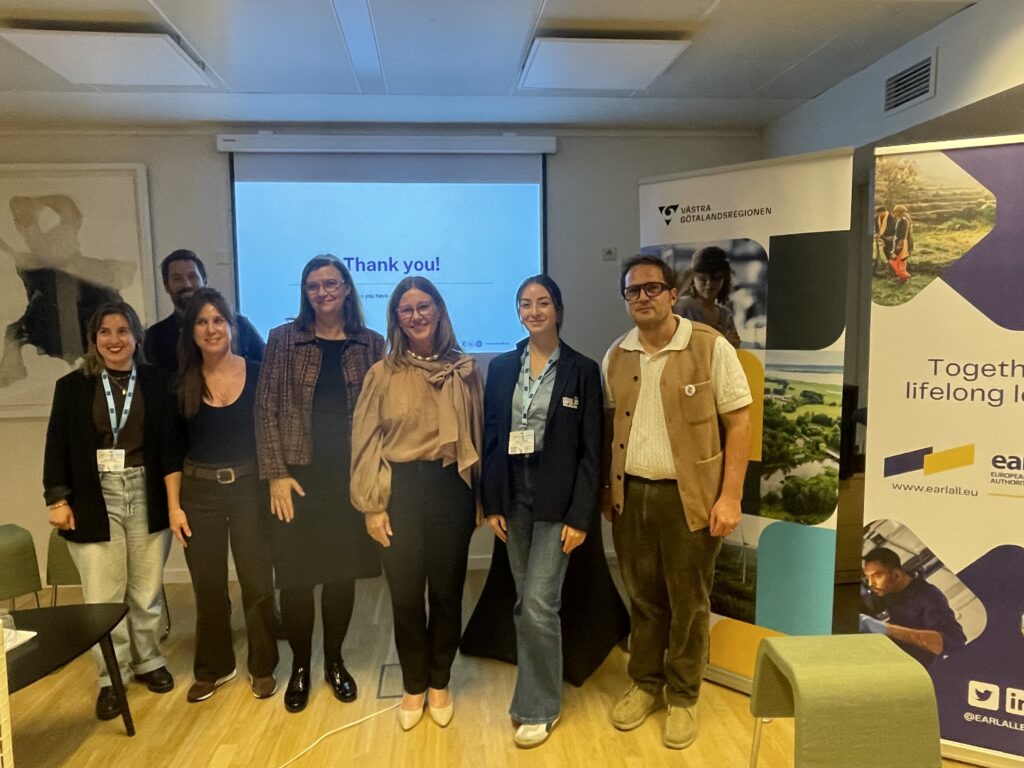
What does it mean to have the right to stay truly—and to build a future—in one’s own region?
This question was at the heart of the workshop “The Power Within: Territories and People Realising Their Potential”, co-organised by EARLALL and Region VästraGötaland. The session explored how territories can transform brain drain into brain gain by investing in people, skills, and local ecosystems that foster regional growth and success.
Held in Brussels on 14 October 2025 as part of the Close-Up programme during the European Week of Regions and Cities (13–15 October), the event brought together participants from EARLALL member regions, partner organisations, and EU institutions for an open and interactive discussion on how to empower both territories and individuals to realise their full potential.
Setting the Scene: The Right to Stay
The event opened with welcoming remarks from Noelia Cantero, EARLALL Director, who invited participants to take part in an open and interactive dialogue:
“This is not just a seminar—it’s a conversation. Let’s use this space to share, question, and learn from one another.”
Madeleine Jonsson, President of the Environment and Regional Development Committee from Region Västra Götaland, which holds the EARLALL Presidency, then set the scene by highlighting the right to stay as a social, territorial, and economic principle.
“Even in regions with strong identities, retaining and attracting people—especially in rural areas—remains a challenge,” she said. “By promoting lifelong learning and skills transitions, we can ensure that everyone has the opportunity to build their future where they belong.”
Jonsson emphasised that lifelong learning is crucial for both inclusion and competitiveness, as knowledge evolves faster than ever before. “Education must be available to everyone, everywhere,” she added, stressing EARLALL’s role in facilitating knowledge sharing between regions.
European Commission: People and Places at the Core
The keynote address was delivered by Eva Schultz, Member of the Cabinet of Executive Vice-President Roxana Mînzatu, from the European Commission. Her participation underlined the importance the EU places on regional collaboration to make transitions fair and inclusive.
Schultz shared three key messages that resonated strongly with participants:
- People and places matter. “Sometimes we forget for whom we are working—people and the places they call home,” she said.
- Transitions must be fair and just. The green and digital transitions can only succeed if they allow people to build their future where they live.
- Collaboration across all levels of governance is essential. “To make transitions work, actions and measures at every level must reinforce each other.”
She also highlighted the Cohesion Policy and ESF+as powerful tools to support territories, stressing the need for continued regional engagement in shaping the EU’s future funding priorities.
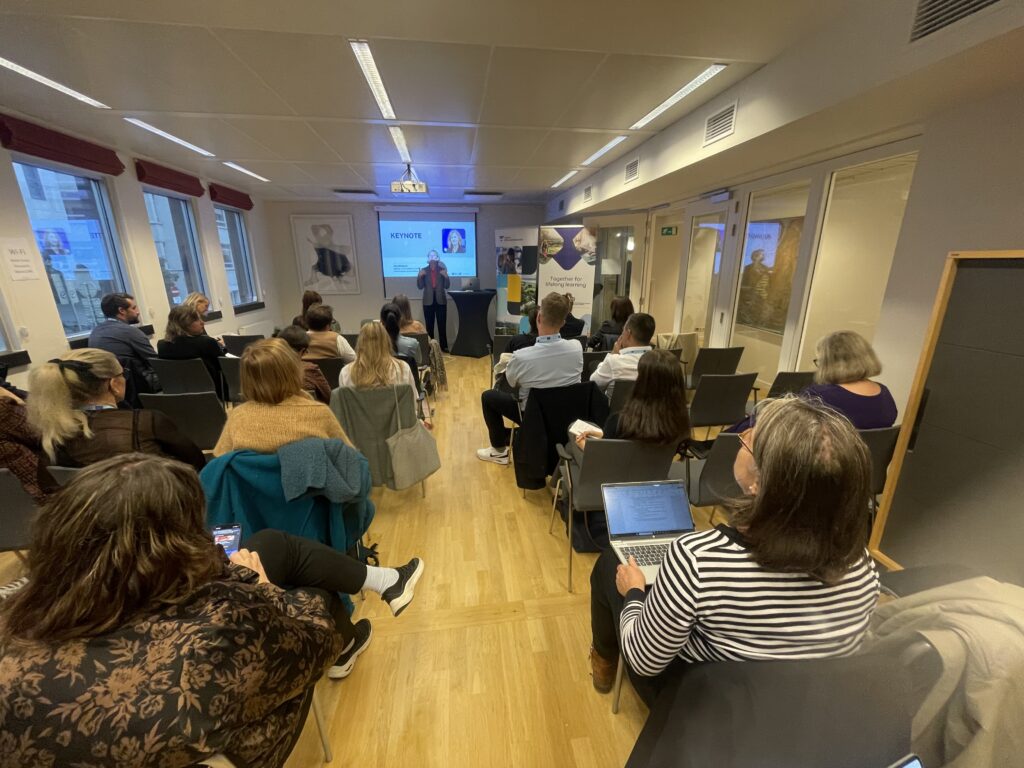
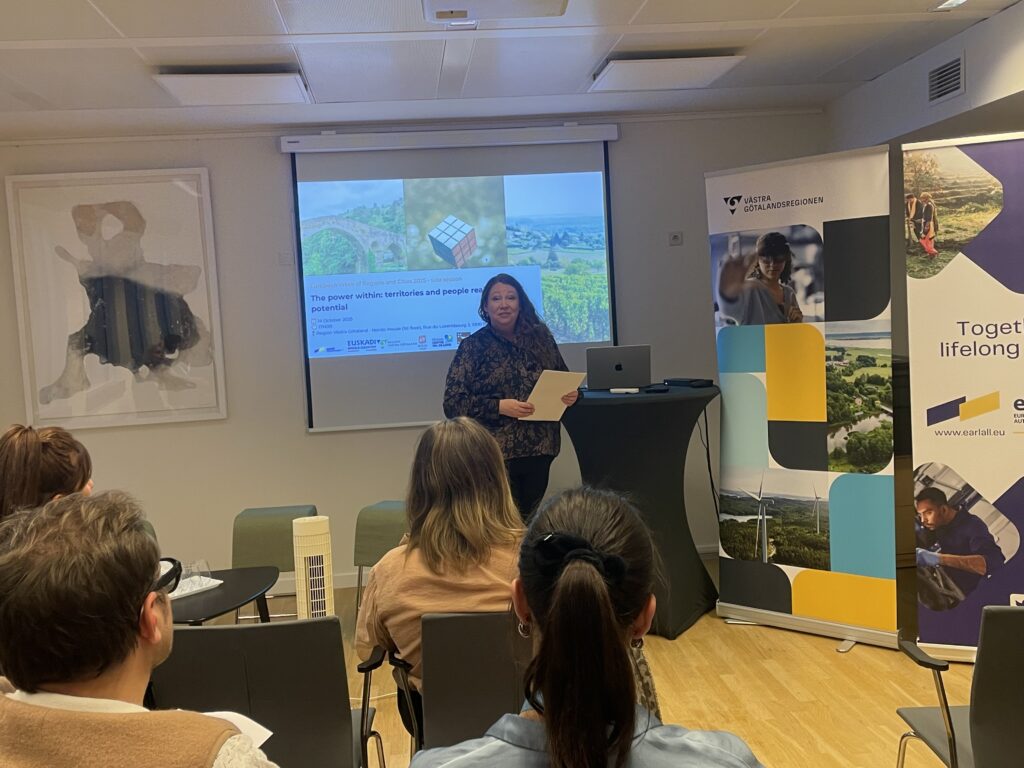
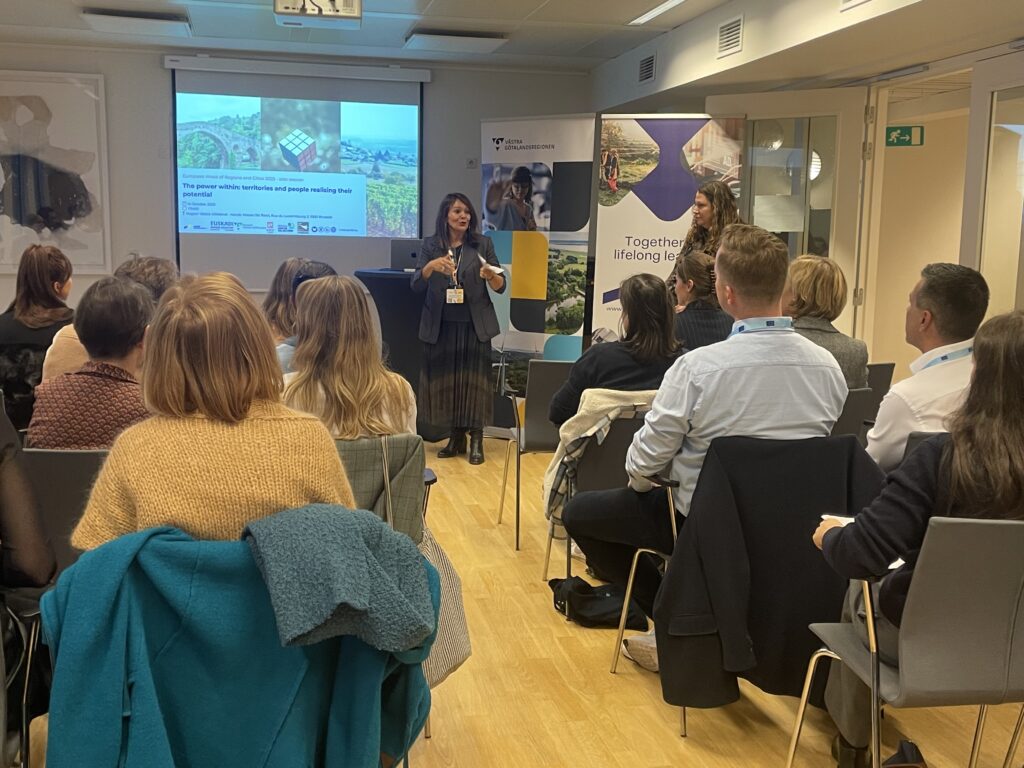
Regional Practices: Inspiration from Across Europe
The interactive panel featured regional representatives and partners presenting inspiring initiatives from across Europe, highlighting how territories are putting learning and skills at the heart of their local development strategies:
Region Västra Götaland – Campus Dalsland
Kristina Sandström showcased Campus Dalsland, a collaborative initiative between six rural municipalities and the Västra Götaland Region. By offering decentralised, hybrid learning opportunities in partnership with universities, the campus allows residents to study close to home—helping retain talent, strengthen local skills supply, and make higher education more accessible in rural areas.
Basque Country – VI Basque VET Plan
Alejandra Martínez highlighted how the Basque Country’s Vocational Education and Training system has become a key engine of competitiveness and social inclusion. The VI Basque VET Plan fosters close cooperation between schools, companies, and social partners to promote innovation, entrepreneurship, and employability—ensuring students gain the skills needed for the region’s ongoing industrial transformation.
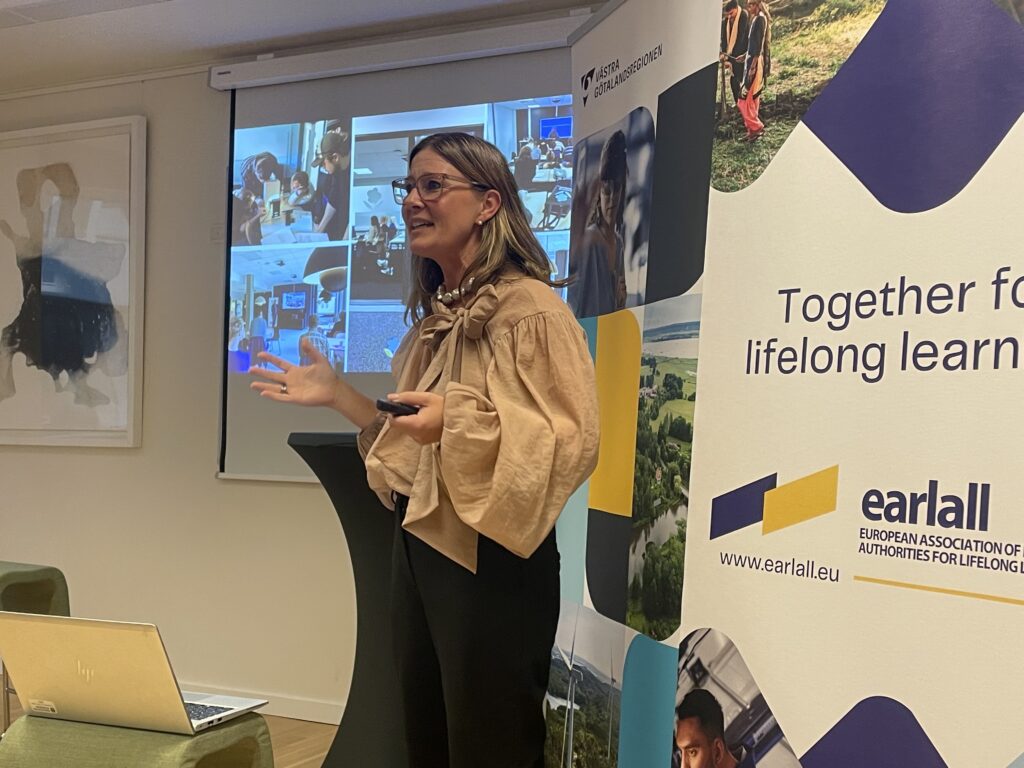
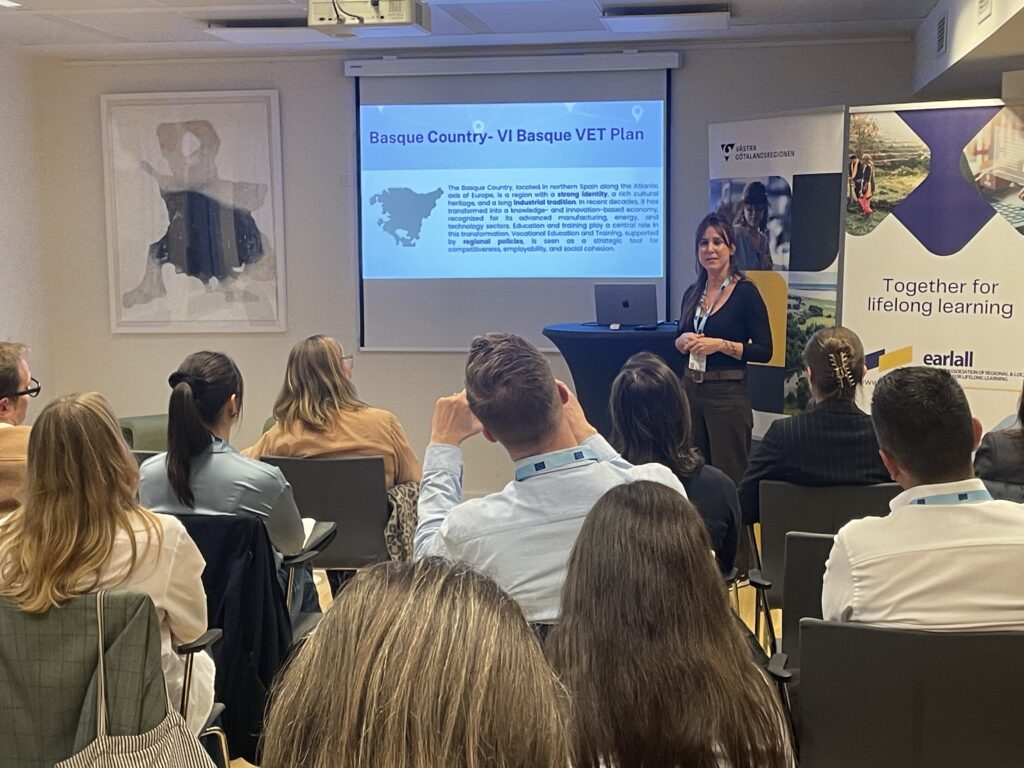
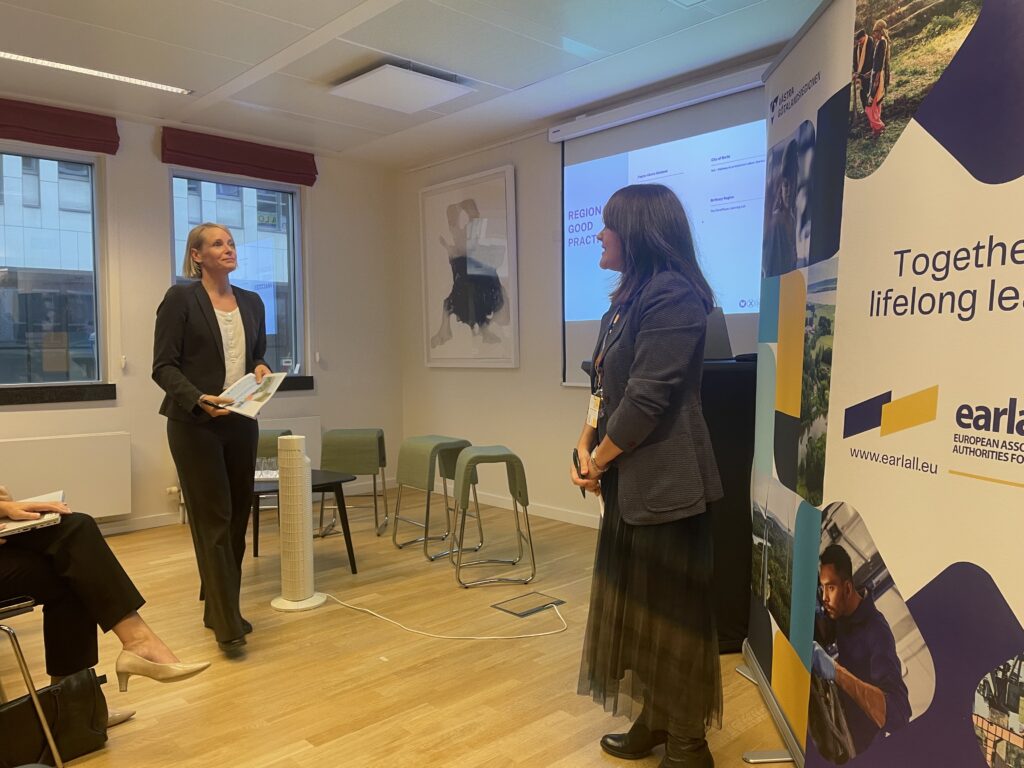
Centre-Val de Loire – Guidance and Apprenticeship to Attract Youth
Matthieu Vallée presented how the Centre-Val de Loire Region supports young people through tailored career guidance, apprenticeships, and initiatives that foster entrepreneurship and civic engagement. By helping learners find their path and connect with local opportunities, the region is strengthening youth employability and revitalising rural areas.
City of Borås – ViA: Pathway to an Inclusive Labour Market
Tina Arekvist Lundell introduced ViA, the City of Borås’s open network that connects employers, civil society, and the municipality to build a more inclusive labour market. Through collaboration and shared learning, ViA helps people far from employment gain new skills while supporting businesses in finding the right talent—making inclusion a driver of innovation and local growth.
Brittany Region – The Third Place: Learning Lab
Lucie Bruyet and Tangi de Rochefort shared how Brittany is using “third places” as spaces for collaboration and innovation in vocational training. By connecting VET centres, companies, and communities, these learning labs create new partnerships and test creative solutions that bring training closer to local needs and strengthen regional skills ecosystems.
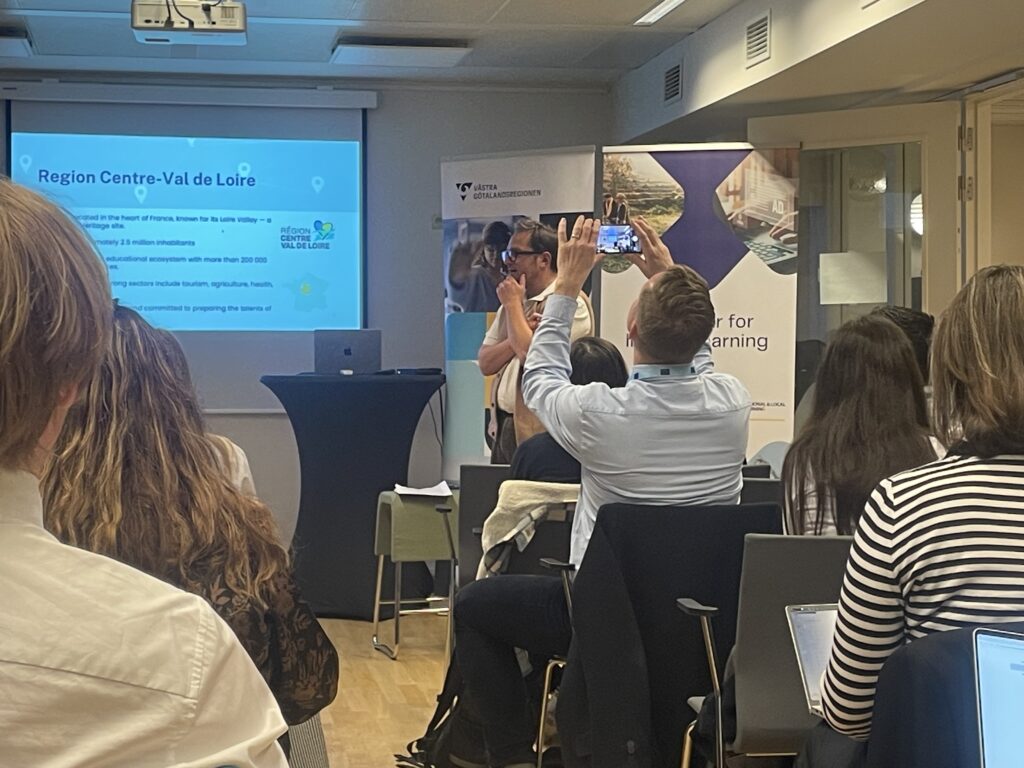
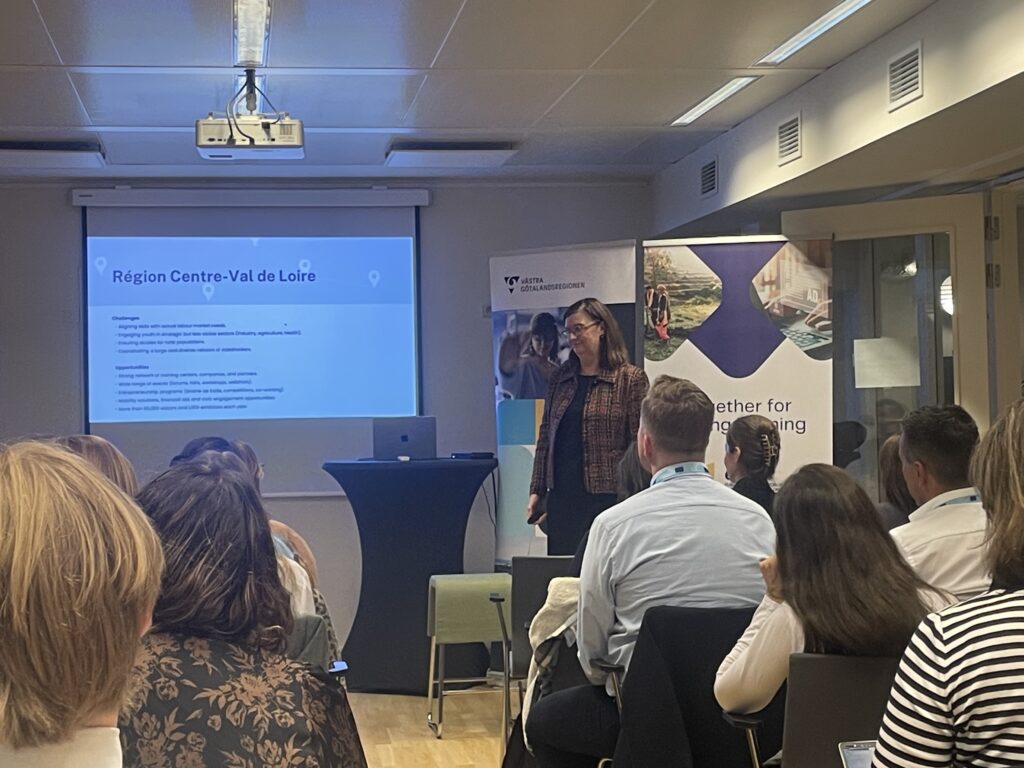
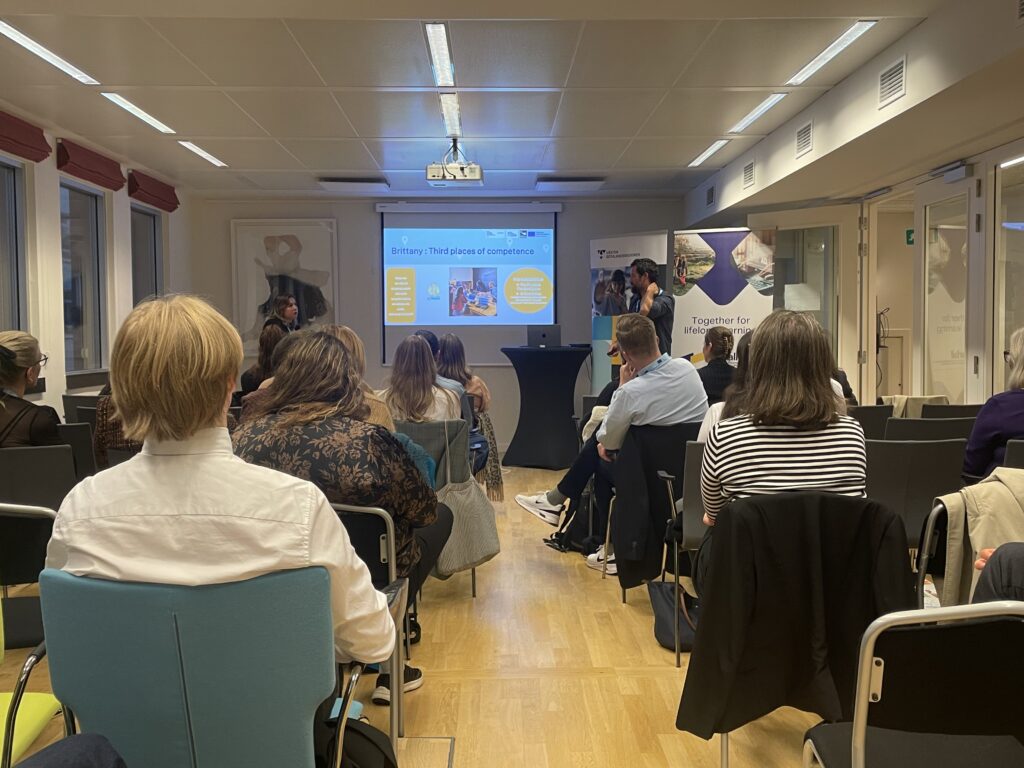
Each case demonstrated that territorial, institutional, and individual empowerment are deeply interconnected. The discussions that followed were marked by openness and exchange, with participants sharing both success stories and lessons learned.
Closing the event, Noelia Cantero reflected on the strong spirit of collaboration and the positive dialogue with the European Commission representative. She offered EARLALL and its member regions experience as test-beds for piloting EU strategies and emphasized that EARLALL regions are ready to contribute actively to the design of EU strategies and policies in the field of lifelong learning and not be mere implementers. “These examples show that the power truly lies within regions—within their people, partnerships, and capacity to learn from one another,” she said.
A booklet compiling all featured regional practices will be shared with EARLALL members to inspire future initiatives. Participants were also invited to continue the conversation at EARLALL’s upcoming public workshops on 5 November, focusing on local attractiveness through education and skills (register here).
Madeleine Jonsson concluded by reaffirming the workshop’s key message: “The power within lies in our people and our territories. When we invest in them, we build regions where everyone has not just the right, but also the reason, to stay.”
Resources
- Booklet compiling all featured regional practices
- Speakers presentations

